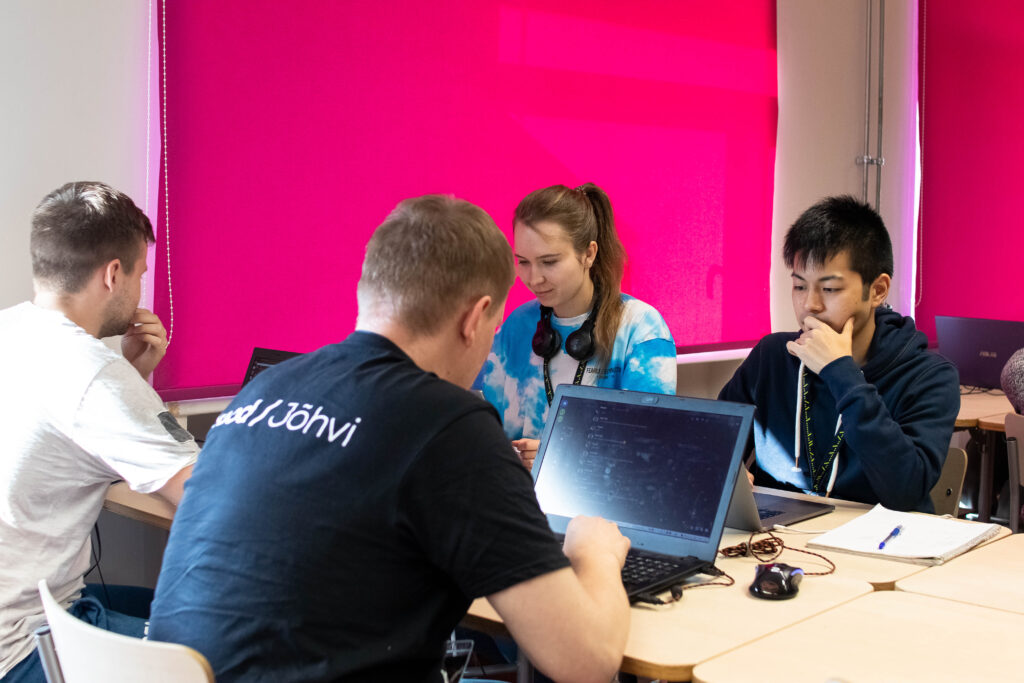“The newest innovation in the Estonian education system” is a headline often ascribed to the Jõhvi coding school (known as kood/Jõhvi in Estonia), and one that underpins its numerous awards on both the national and European level. But how does the school actually function? And can you learn computer programming without traditional classrooms?
First launched in 2021 in Estonia’s north-eastern Ida-Viru County, the Jõhvi coding school – officially known as kood/Jõhvi in Estonian – represents a new type of coding school. Its ethos, “no teachers, no classes but 100% coding,” reflects the school’s self-learning methodology. One that emphasises practical coding tasks and hands-on experience over lectures, textbooks and theory.
Having attracted 3,300 applicants vying for 200 spots, kood/Jõhvi has certainly struck a chord with the wider community. What’s more, the diversity of prospective students – 16 nationalities, an average age of 27 with the oldest being 62, a range of professions including a diver and a chef to a lawyer and those who haven’t yet graduated high school – suggests that not only the growing tech industry but also the school’s novel educational model has significant appeal.
All of which begs the question: Why does this varied group of people prefer the coding school in Jõhvi and how does this new way of learning actually function?
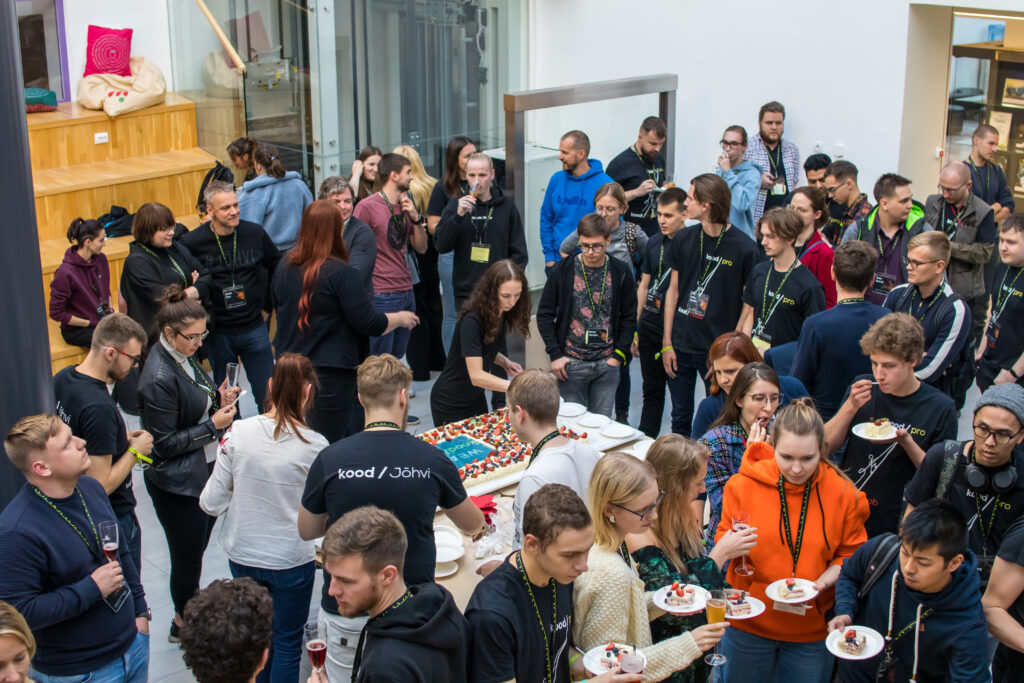
Freedom and responsibility for your own path
Various arguments could be made for the interest that the Jõhvi coding school has garnered since opening, such as its location in the bourgeoning Ida-Viru County or its strong relationships with startups and established companies alike.
However, all of that would be somewhat moot if it wasn’t for the school’s commitment to a more inclusive and accessible self-learning methodology, which affords students the freedom to study when, where and how they want, so long as they complete the 21 mandatory tasks.
With no deadlines and no exams, the two-year course requires a level of discipline that usually stems from a teacher regularly collecting and grading assignments. Given that each task at kood/Jõhvi is interconnected and a student must complete one before moving to the next – which is further supplemented by optional tasks – it can be relatively easy to fall behind.
Nevertheless, the school recognises that the learning process varies from person to person. While the responsibility to be “the master of your own time” is suitable and favoured by some, it’s unthinkable for others, and students need to have a certain type of mentality to succeed at Jõhvi.
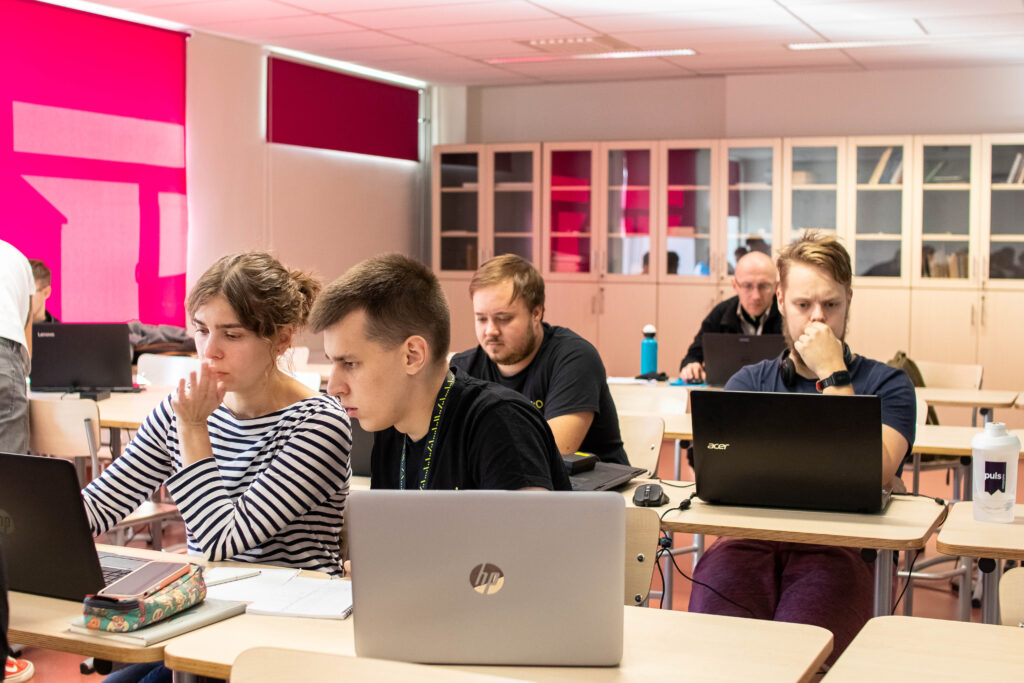
Self-learning means self-failing?
The pedagogy at kood/Jõhvi is built on self-study, but the key to success is peer-to-peer cooperation. Essentially, if a student finds themself stuck on a task or struggling to understand a concept, they’re encouraged to follow these three steps:
1) Look to your right and ask for help;
2) Look to your left and ask for help;
3) Use Google – everything is googleable.
Put another way, the Jõhvi coding school sets each student up to also be a teacher, and with roughly 80 percent of any given task requiring some form of teamwork, it’s in everyone’s best interest to support each other and act as teachers.
It’s a system that mirrors real-world working environments, where employees are often expected to work with their colleagues on various projects. Incidentally, however, many find it surprisingly difficult to ask for advice or support following years of individualised study in a traditional education system.

Testing the students while students test the school
The Jõhvi coding school’s application process – which is open to anyone 18 and older with a secondary education and some knowledge of verbal and written English – introduces students to the practice of learning without teachers from the start.
The first step is an online test, in which applicants figure out what is required of them before spending one and a half hours completing a set of tasks.
The highest-scoring candidates are then invited to the Selection Sprint, a three-week on-site coding boot camp with daily tasks, exams and group projects. For the students, it’s an opportunity to dabble in the self-learning methodology as well as programming in general, all while meeting and collaborating with their potential cohort.
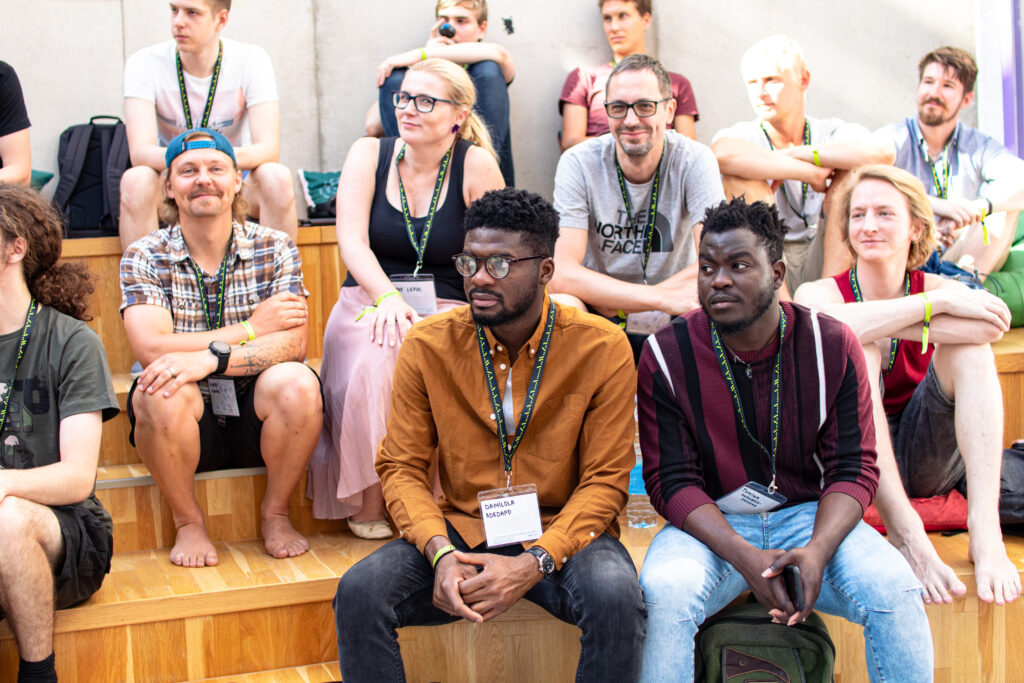
What’s more, it’s an intensive course meant to weed out anyone who isn’t motivated and committed, with some participants saying that they got as much practical programming knowledge from the Sprint as they did in a year at university. Likewise, during the 2021 Selection Sprint, about 15 percent of the candidates dropped out of the application process after deciding the system wasn’t for them.
kood/Jõhvi backstory
The idea and initiative for kood/Jõhvi was inspired by the very industry it hopes to contribute to – the startup sector. In no uncertain terms, there is a need for more people with tech skills in Estonia and instead of complaining about it, the founders of the school took a bold move in implementing one possible, it not slightly unorthodox, solution to the problem.
The coding school in Jõhvi was founded by eight entrepreneurs from Estonia – Marek Kiisa, Taavet Hinrikus, Martin Villig, Rainer Sternfeld, Merlin Seeman, Maarja Pehk, Mari-Liis Kitter and Ede Tamkivi – to close the gap in qualified software engineers.
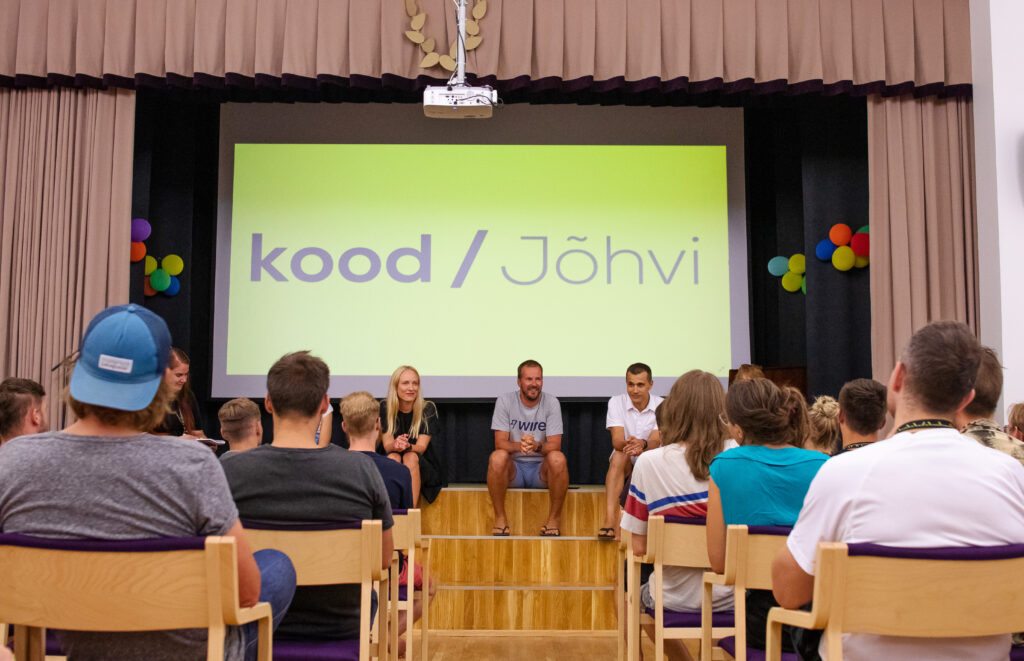
The school is an excellent example of public and private sector cooperation. The main supporters for the school are over 30 startups and other companies, including Bolt, Wise, Veriff, Pipedrive and more. Governmental support is used to fund the renovation of the school building in Jõhvi.
Applications to the new class of kood/Jõhvi are open.

